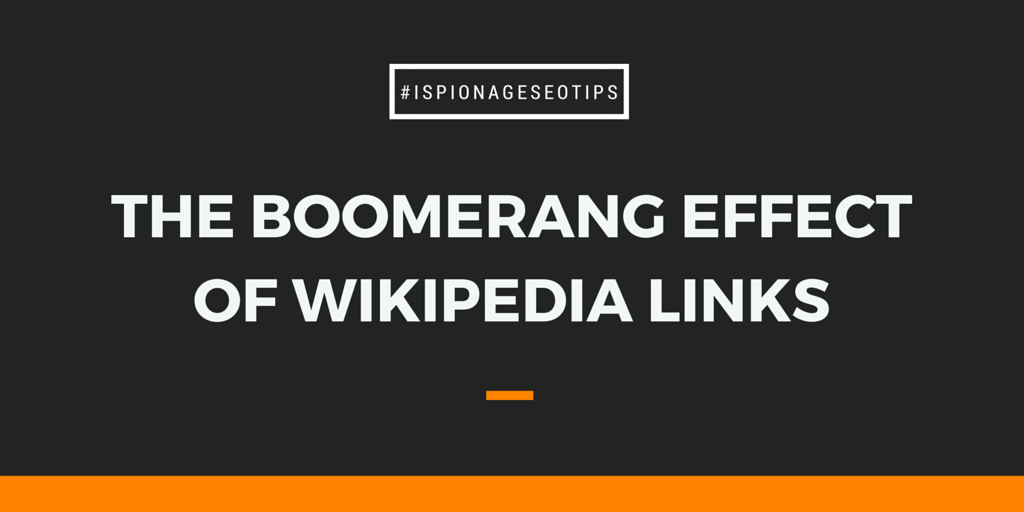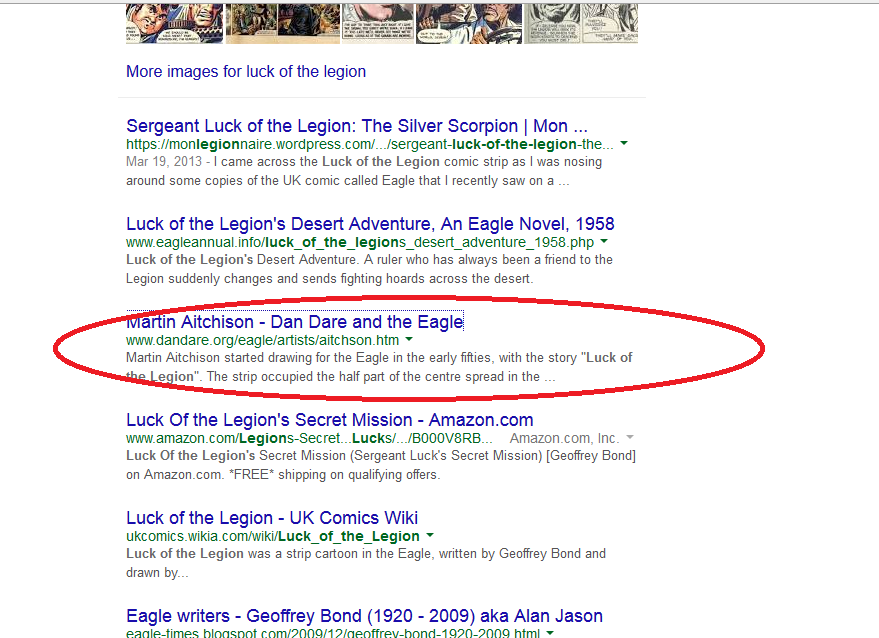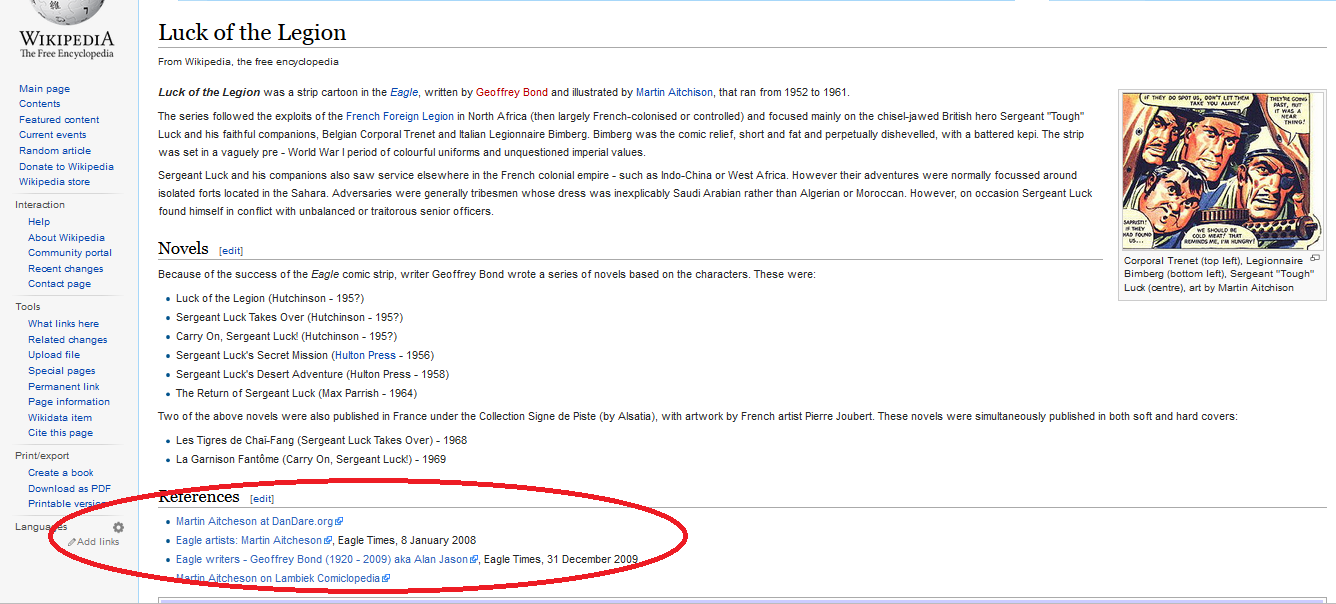
Yes, you heard that correctly. The title does say Wikipedia.
Most marketers already know that Wikipedia carries a lot of weight with Google.
With Wikipedia coming up on page one for the majority of search terms, you can see the power of the site without doing any research.
It’s the 7th most used website with more than 325 million readers worldwide. Despite it not being a reliable source for the academic world, we can all agree that it is one of the most popular and useful websites out there.

(Image provided by www.legalmorning.com)
Many marketers look to take advantage of Wikipedia in one of two ways. The first is to create a Wikipedia article for their client. The second is to incorporate their website links within various articles.
Why Would Marketers Want Their Link Included in Wikipedia?
To understand this better, we need to look at how Wikipedia has been used in the past. As an open source community, anyone is allowed to edit the site. It’s simple and quick and probably one of the fastest ways to get a backlink. Years ago, marketers figured out that Google gave tons of weight to links within Wikipedia. So much so, that marketers began to spam links as fast as they could.
That’s why Wikipedia changed links from “do-follow” to “no-follow.”
No-Follow Versus Do-Follow. Is There Really a Difference with Wikipedia?
“No-follow” links do not carry as much weight as “do-follow” links. I think this is something that we can all agree on. In order to combat spam, Wikipedia began implementing its no-follow link policy in order to discourage marketers from using the site for promotion. While this curbed the spam, it did not seem to affect the value of links from Wikipedia.
Google still gives heavy weight to links from Wikipedia, despite having a no-follow attribute. As such, people continue to spam the site in an attempt to increase their page rank, just not as badly as they did before.
The Boomerang Effect of Wikipedia Links
Wikipedia causes what I like to refer to as the boomerang effect. The way it works is simple. We already know that Wikipedia ranks high in search. When there is a link in a high ranking Wikipedia article, it tends to bring the references along with it.
So links that generally may not have a high page rank, will increase in rank simply from the rank and weight of the Wikipedia article.
Let me show you what this looks like. Let’s do a search for “Luck of the Legion,” a strip cartoon from the 1950s. This was a random article I pulled from Wikipedia thanks to its “random page” generator. When I do a Google search for the topic, you can see numerous search results, one of which is from the website DanDare.org.

The site has a pagerank of 3, but a domain authority of 31 and approximately 300 backlinks to its site. However, it outranks Amazon.com (page rank of 8, domain authority of 97, and more than 3 million backlinks).
How was it able to do that?
Dandare.org has become the recipient of the Wikipedia boomerang effect. Despite not being as authoritative as Amazon.com, it outranks it in the search results.
If you look at the Wikipedia page for Luck of the Legion, the Dandare.org reference is used in the article (see below–keep in mind that due to Wikipedia being open sourced, the current article may not reflect what is pictured). If you look at the bottom of the search results above, you will even see that a blog from Blogger made it to the first page of results. Guess what? It’s also used in the Wikipedia article as a reference.

This concept is something I have preached to reputation management companies for years. While Wikipedia has been used for reputation management purposes, I advise them to steer clear of it for ORM. The reason is because Wikipedia will affect negative links the same way it affects positive ones.
If you are trying to bury content on page two of Google, creating a Wikipedia page is going to unwind your reputation efforts. The Wikipedia page will end up on page one and as soon as others introduce the negative links (keep in mind that anyone can edit Wikipedia), it will bring everything back to page one.
How to Take Advantage of the Wikipedia Boomerang Effect
First, creating a Wikipedia article is a great way to help your page rank higher. Links within will help any page, especially your main website. If you have an external link from Wikipedia to your site, Google will begin to fall in love with you.
Adding links to your site will also help. Not only links from your site, but links to press about your site. If a major publication has talked about you or your services, you can find a place in Wikipedia where a link to that article would be relevant. This will help keep the positive press about you higher in search results for people to view.
Sounds great, right? Well, I have one final note for those now wanting to use Wikipedia in their marketing plans. Don’t take on a Wikipedia project unless you have experience doing so. Article creation and link building on Wikipedia requires knowledge of Wikipedia rules and specific strategies to make sure you don’t get labeled a spammer.
Failure to do things properly could lead to your website being banned and blacklisted by Wikipedia, which isn’t the result you’re looking for. I recommend hiring an expert or else doing a lot of research before diving in and getting your hands dirty.
The Author
Michael Wood is an online marketing expert and owner of Legalmorning.com. He specializes in reputation and brand management, article writing, and professional Wikipedia editing. He is an expert Wikipedia editor and has helped hundreds of businesses and people post their articles to the site where they have otherwise failed.










